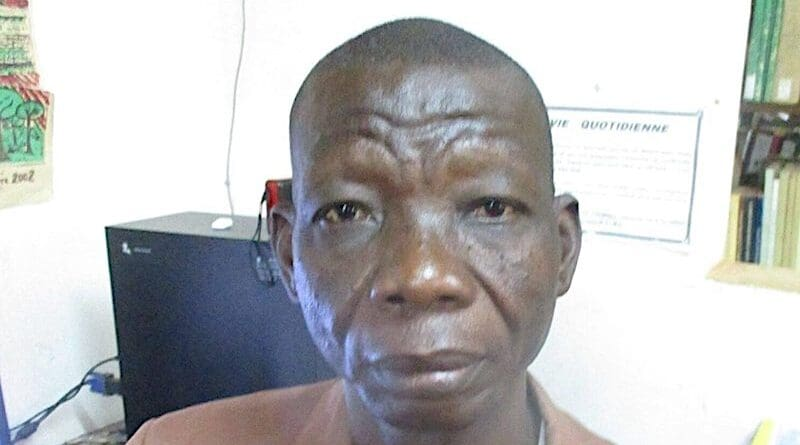Political and military analyst Gregoire Cyrille Dongobada has authored more than 75 articles in two and a half years, reporting about more than a dozen West African countries.
Originally from the Central African Republic, he is now based in Paris. Dongobada has used his expert analysis to focus on French and Russian roles in the African security sector with headlines such as, “The reasons for anti-French sentiment in West Africa” and “France’s jealousy of the successes of the Russian presence in Mali.”
There is a problem, however: Gregoire Cyrille Dongobada doesn’t exist.
A recent investigation into “ghost reporters” by Al Jazeera found more than 15 writers whose bylines appeared on at least 200 articles since 2021 in publications throughout West Africa. The articles fit a well-known profile for Russian propaganda that heaps criticism on France and the United Nations while glorifying the presence of Russian mercenaries.
“The so-called analyst, [Dongobada], appears out of nowhere in February 2021,” Al Jazeera said in a March 19 video. “There is no record of his education, no sign of him being connected to think tanks or universities and no employment history.”
For its report, Al Jazeera analyzed pictures used by Dongobada on social media and discovered that they match those of a Central African man named Jean Claude Sendeoli, a teacher and football referee who died in 2020.
“Someone, whether a state or a nonstate actor, is using the identity of someone who’s died to do their own propaganda,” Michael Amoah, a political scientist at the London School of Economics, told Al Jazeera.
The investigation turned up a web of middlemen laundering Russian propaganda and payments to place content in African publications with fake authors who appear to be authentic locals. One of the middlemen, Seth Boampong Wiredu, moved from Ghana to Russia in 2008 to study in the city of Novgorod before he became a Russian citizen in 2019.
Wiredu has been linked to similar Russian disinformation campaigns in the past, according to Al Jazeera. The investigation found an increased Russian presence in each of the West African countries where the laundered propaganda articles appeared. They include Burkina Faso, Mali and Niger, which are led by military junta governments working with Russian mercenary outfits.
The Russian fighters, however, have failed to stem the deadly tide of terrorism that is sweeping through the Sahel and threatening West Africa’s coastal states. In fact, credible evidence of war crimes including summary executions, rape and torture, have followed Russian Wagner Group and Africa Corps mercenaries wherever they operate.
Along with its military and political influence, the Kremlin’s hybrid strategy also includes the systematic extraction of precious natural resources and an onslaught of false information designed to deliberately mislead targeted African populations regarding their governments, policies, and the news of the day.A 2024 report published by the Africa Center for Strategic Studies showed that Russia is the leading purveyor of such state-sponsored campaigns on the continent, as it attributed 80 out of nearly 200 campaigns to Russia — far more than other countries active in the information space such as China, Saudi Arabia, the United Arab Emirates and Qatar.
Aldu Cornelissen is co-founder of South Africa-based Murmur Intelligence, which analyzes social networks. He described Russia’s social media strategy on the continent as a “global network of key accounts that are interwoven with other key accounts in the African context.”
“From there, local influencers in each country take over the messages and adapt the narrative to the local context,” he told Deutsche Welle.
Whereas Russia previously used homegrown troll factories to spread social media content, Cornelissen said the Kremlin’s propaganda campaigns now originate from people who share or are familiar with linguistic and cultural aspects of local communities. He calls them “nano-influencers” and has documented their activities in South Africa.
“All of them are paid,” he said. “If you pay a thousand people 200 Rand (or $11) each, it’s a very cheap campaign to establish a narrative in one day.”
Beverly Ochieng, a researcher in the Africa program of the Centre for Strategic and International Studies based in Dakar, Senegal, points out a similar example:
“When a civil rights group from Mali posts in Bambara, it doesn’t look like it’s coming from a Russian civil servant,” she told DW. “It looks like a genuine opinion from someone who speaks the local language and knows the sensitivities of the people.”

